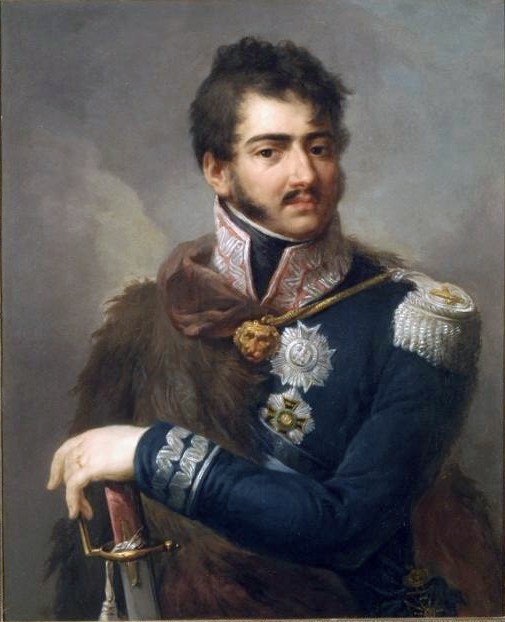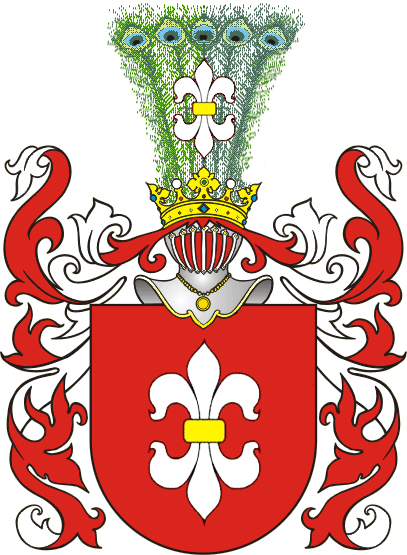|
Raczki, Podlaskie Voivodeship
Raczki is a village in Suwałki County, Podlaskie Voivodeship, in north-eastern Poland. It is the seat of the gmina (administrative district) called Gmina Raczki. It lies approximately south-west of Suwałki and north of the regional capital Białystok. The village has a population of 2,100. History Raczki was founded in the 16th century and was initially named ''Dowspuda Raczkowska'', however, the name was soon changed to Raczki after the local Raczkowicz noble family, owners of the territory. It was granted town rights in 1558 or earlier, as it was mentioned as a town in a document from 1558. In 1682 King John III Sobieski granted trade privileges, and in 1703 King Augustus II the Strong granted (confirmed) town rights. In 1748, Raczki was bought by the Pac family. The Pac family expanded the town, and the family's Gozdawa coat of arms remains the coat of arms of Gmina Raczki. In the Third Partition of Poland, in 1795, the town was annexed by Prussia, and in 1807 it pass ... [...More Info...] [...Related Items...] OR: [Wikipedia] [Google] [Baidu] |
Countries Of The World
The following is a list providing an overview of sovereign states around the world with information on their status and recognition of their sovereignty. The 206 listed states can be divided into three categories based on membership within the United Nations System: 193 member states of the United Nations, UN member states, 2 United Nations General Assembly observers#Present non-member observers, UN General Assembly non-member observer states, and 11 other states. The ''sovereignty dispute'' column indicates states having undisputed sovereignty (188 states, of which there are 187 UN member states and 1 UN General Assembly non-member observer state), states having disputed sovereignty (16 states, of which there are 6 UN member states, 1 UN General Assembly non-member observer state, and 9 de facto states), and states having a political status of the Cook Islands and Niue, special political status (2 states, both in associated state, free association with New Zealand). Compi ... [...More Info...] [...Related Items...] OR: [Wikipedia] [Google] [Baidu] |
Gmina
The gmina (Polish: , plural ''gminy'' , from German ''Gemeinde'' meaning ''commune'') is the principal unit of the administrative division of Poland, similar to a municipality. , there were 2,477 gminas throughout the country, encompassing over 43,000 villages. 940 gminas include cities and towns, with 302 among them constituting an independent urban gmina ( pl, gmina miejska) consisting solely of a standalone town or one of the 107 cities, the latter governed by a city mayor (''prezydent miasta''). The gmina has been the basic unit of territorial division in Poland since 1974, when it replaced the smaller gromada (cluster). Three or more gminas make up a higher level unit called powiat, except for those holding the status of a city with powiat rights. Each and every powiat has the seat in a city or town, in the latter case either an urban gmina or a part of an urban-rural one. Types There are three types of gmina: #302 urban gmina ( pl, gmina miejska) constituted either by a sta ... [...More Info...] [...Related Items...] OR: [Wikipedia] [Google] [Baidu] |
Duchy Of Warsaw
The Duchy of Warsaw ( pl, Księstwo Warszawskie, french: Duché de Varsovie, german: Herzogtum Warschau), also known as the Grand Duchy of Warsaw and Napoleonic Poland, was a French client state established by Napoleon Bonaparte in 1807, during the Napoleonic Wars. It comprised the ethnically Polish lands ceded to France by Prussia under the terms of the Treaties of Tilsit. It was the first attempt to re-establish Poland as a sovereign state after the 18th-century partitions and covered the central and southeastern parts of present-day Poland. The duchy was held in personal union by Napoleon's ally, Frederick Augustus I of Saxony, who became the Grand Duke of Warsaw and remained a legitimate candidate for the Polish throne. Following Napoleon's failed invasion of Russia, the duchy was occupied by Prussian and Russian troops until 1815, when it was formally divided between the two countries at the Congress of Vienna. The east-central territory of the duchy acquired by the Russia ... [...More Info...] [...Related Items...] OR: [Wikipedia] [Google] [Baidu] |
Kingdom Of Prussia
The Kingdom of Prussia (german: Königreich Preußen, ) was a German kingdom that constituted the state of Prussia between 1701 and 1918.Marriott, J. A. R., and Charles Grant Robertson. ''The Evolution of Prussia, the Making of an Empire''. Rev. ed. Oxford: Clarendon Press, 1946. It was the driving force behind the unification of Germany in 1871 and was the leading state of the German Empire until its dissolution in 1918. Although it took its name from the region called Prussia, it was based in the Margraviate of Brandenburg. Its capital was Berlin. The kings of Prussia were from the House of Hohenzollern. Brandenburg-Prussia, predecessor of the kingdom, became a military power under Frederick William, Elector of Brandenburg, known as "The Great Elector". As a kingdom, Prussia continued its rise to power, especially during the reign of Frederick II, more commonly known as Frederick the Great, who was the third son of Frederick William I.Horn, D. B. "The Youth of Frederick ... [...More Info...] [...Related Items...] OR: [Wikipedia] [Google] [Baidu] |
Third Partition Of Poland
The Third Partition of Poland (1795) was the last in a series of the Partitions of Poland–Lithuania and the land of the Polish–Lithuanian Commonwealth among Prussia, the Habsburg monarchy, and the Russian Empire which effectively ended Polish–Lithuanian national sovereignty until 1918. The partition was the result of the Kościuszko Uprising and was followed by a number of Polish uprisings during the period. Background Following the First Partition of Poland in 1772, in an attempt to strengthen the significantly weakened Commonwealth, King Stanisław August Poniatowski put into effect a series of reforms to enhance Poland's military, political system, economy, and society. These reforms reached their climax with the enactment of the May Constitution in 1791, which established a constitutional monarchy with separation into three branches of government, strengthened the bourgeoisie and abolished many of the nobility's privileges as well as many of the old laws of serfdom. I ... [...More Info...] [...Related Items...] OR: [Wikipedia] [Google] [Baidu] |
Pac Family
The House of Pac or Pacowie ( pl, Pacowie, lt, Pacai, be, Па́цы) was one of the most influential noble families in the Grand Duchy of Lithuania during the era of the Polish–Lithuanian Commonwealth. Numerous high-ranking officials of the Commonwealth came from their ranks. Their coat of arms was Gozdawa. The family reached the height of its influence during the second half of the 17th century. Their lands were located mainly in Hrodna ( pl, Grodno, lt, Gardinas) and Lida ( lt, Lyda). The family's ancestor Kimantas was mentioned in the privilege of 1388 issued by Grand Duke of Lithuania Vytautas the Great as ''Kymunt''. The estate of the family in proximity of Grodno was mentioned in the road description, charted by the Teutonic Knights, as ''Kymundsdorf''. Kimantas and his son Daukša (Dowkszewicz) were among the signatories of the Union of Vilnius and Radom of 1401. Daukša's son Pac is considered the first member of the family; his descendants took his first name ... [...More Info...] [...Related Items...] OR: [Wikipedia] [Google] [Baidu] |
Augustus II The Strong
Augustus II; german: August der Starke; lt, Augustas II; in Saxony also known as Frederick Augustus I – Friedrich August I (12 May 16701 February 1733), most commonly known as Augustus the Strong, was Elector of Saxony from 1694 as well as King of Poland and Grand Duke of Lithuania in the years 1697–1706 and from 1709 until his death in 1733. He belonged to the Albertine line of the House of Wettin. Augustus' great physical strength earned him the nicknames "the Strong", "the Saxon Hercules" and "Iron-Hand". He liked to show that he lived up to his name by breaking horseshoes with his bare hands and engaging in fox tossing by holding the end of his sling with just one finger while two of the strongest men in his court held the other end.Sacheverell Sitwell. ''The Hunters and the Hunted'', p. 60. Macmillan, 1947. He is also notable for fathering a very large number of children. In order to be elected King of the Polish–Lithuanian Commonwealth, Augustus converted to Roman ... [...More Info...] [...Related Items...] OR: [Wikipedia] [Google] [Baidu] |
Privilege (law)
A privilege is a certain entitlement to immunity granted by the state or another authority to a restricted group, either by birth or on a conditional basis. Land-titles and taxi medallions are examples of transferable privilege – they can be revoked in certain circumstances. In modern democratic states, a ''privilege'' is conditional and granted only after birth. By contrast, a ''right'' is an inherent, irrevocable entitlement held by all citizens or all human beings from the moment of birth. Various Examples of old common law privilege still exist – to title deeds, for example. Etymologically, a privilege (''privilegium'') means a "private law", or rule relating to a specific individual or institution. The principles of conduct that members of the legal profession observe in their practice are called legal ethics. Boniface's abbey of Fulda, to cite an early and prominent example, was granted '' privilegium'', setting the abbot in direct contact with the pope, bypassing th ... [...More Info...] [...Related Items...] OR: [Wikipedia] [Google] [Baidu] |
John III Sobieski
John III Sobieski ( pl, Jan III Sobieski; lt, Jonas III Sobieskis; la, Ioannes III Sobiscius; 17 August 1629 – 17 June 1696) was King of Poland and Grand Duke of Lithuania from 1674 until his death in 1696. Born into Polish nobility, Sobieski was educated at the Jagiellonian University and toured Europe in his youth. As a soldier and later commander, he fought in the Khmelnytsky Uprising, the Russo-Polish War and during the Swedish invasion known as the Deluge. Sobieski demonstrated his military prowess during the war against the Ottoman Empire and established himself as a leading figure in Poland and Lithuania. In 1674, he was elected monarch of the Polish–Lithuanian Commonwealth following the sudden and unexpected death of King Michael. Sobieski's 22-year reign marked a period of the Commonwealth's stabilization, much needed after the turmoil of previous conflicts. Popular among his subjects, he was an able military leader, most famous for his victory over the Turks ... [...More Info...] [...Related Items...] OR: [Wikipedia] [Google] [Baidu] |
Town Rights
Town privileges or borough rights were important features of European towns during most of the second millennium. The city law customary in Central Europe probably dates back to Italian models, which in turn were oriented towards the traditions of the self-administration of Roman cities. Judicially, a borough (or burgh) was distinguished from the countryside by means of a charter from the ruling monarch that defined its privileges and laws. Common privileges involved trade (marketplace, the storing of goods, etc.) and the establishment of guilds. Some of these privileges were permanent and could imply that the town obtained the right to be called a borough, hence the term "borough rights" (german: Stadtrecht; nl, stadsrechten). Some degree of self-government, representation by diet, and tax-relief could also be granted. Multiple tiers existed; for example, in Sweden, the basic royal charter establishing a borough enabled trade, but not foreign trade, which required a highe ... [...More Info...] [...Related Items...] OR: [Wikipedia] [Google] [Baidu] |
Szlachta
The ''szlachta'' (Polish: endonym, Lithuanian: šlėkta) were the noble estate of the realm in the Kingdom of Poland, the Grand Duchy of Lithuania, and the Polish–Lithuanian Commonwealth who, as a class, had the dominating position in the state, exercising extensive political rights and power. Szlachta as a class differed significantly from the feudal nobility of Western Europe. The estate was officially abolished in 1921 by the March Constitution."Szlachta. Szlachta w Polsce" ''Encyklopedia PWN'' The origins of the ''szlachta'' are obscure and the subject of several theories. Traditionally, its members owned land (allods), [...More Info...] [...Related Items...] OR: [Wikipedia] [Google] [Baidu] |




.jpg)
